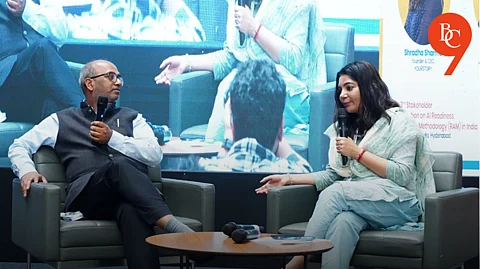

The UNESCO Regional Office for South Asia, in partnership with India’s Ministry of Electronics and Information Technology (MeitY) and Ikigai Law, hosted the third stakeholder consultation on the AI Readiness Assessment Methodology (RAM) on April 8, 2025, at Hyderabad’s T-Works. This event marks a pivotal step in India’s pursuit of becoming a global AI leader while prioritizing ethical governance.
Following earlier consultations in New Delhi and Bangalore, the Hyderabad meet brought together policymakers, technologists, and academics to discuss India’s AI landscape. Highlights included a fireside chat with Mr. Abhishek Singh, CEO of the IndiaAI Mission, and a panel on “Shaping Ethics in AI Governance” featuring experts from MeitY, UNESCO, and academia.
Participants engaged in focused breakout sessions covering governance, workforce readiness, infrastructure, and AI use cases. This multi-stakeholder approach aims to ensure India’s AI policies are inclusive, transparent, and aligned with global ethical standards.
The AI RAM initiative serves as a diagnostic tool to evaluate India’s AI ecosystem—assessing infrastructure, legislation, and stakeholder readiness. Insights from these consultations will feed into a comprehensive AI policy report that identifies strengths and gaps, guiding India’s ethical AI adoption aligned with UNESCO’s Global Recommendation on the Ethics of AI.
India’s ambitious INDIAai Mission, backed by over ₹10,000 crore, anchors the country’s AI strategy. The mission emphasizes “Safe and Trusted AI,” focusing on building secure, accountable AI systems. It supports innovation through pillars like skill development, data access, and startup financing, ensuring AI benefits reach sectors like healthcare, education, and agriculture.
